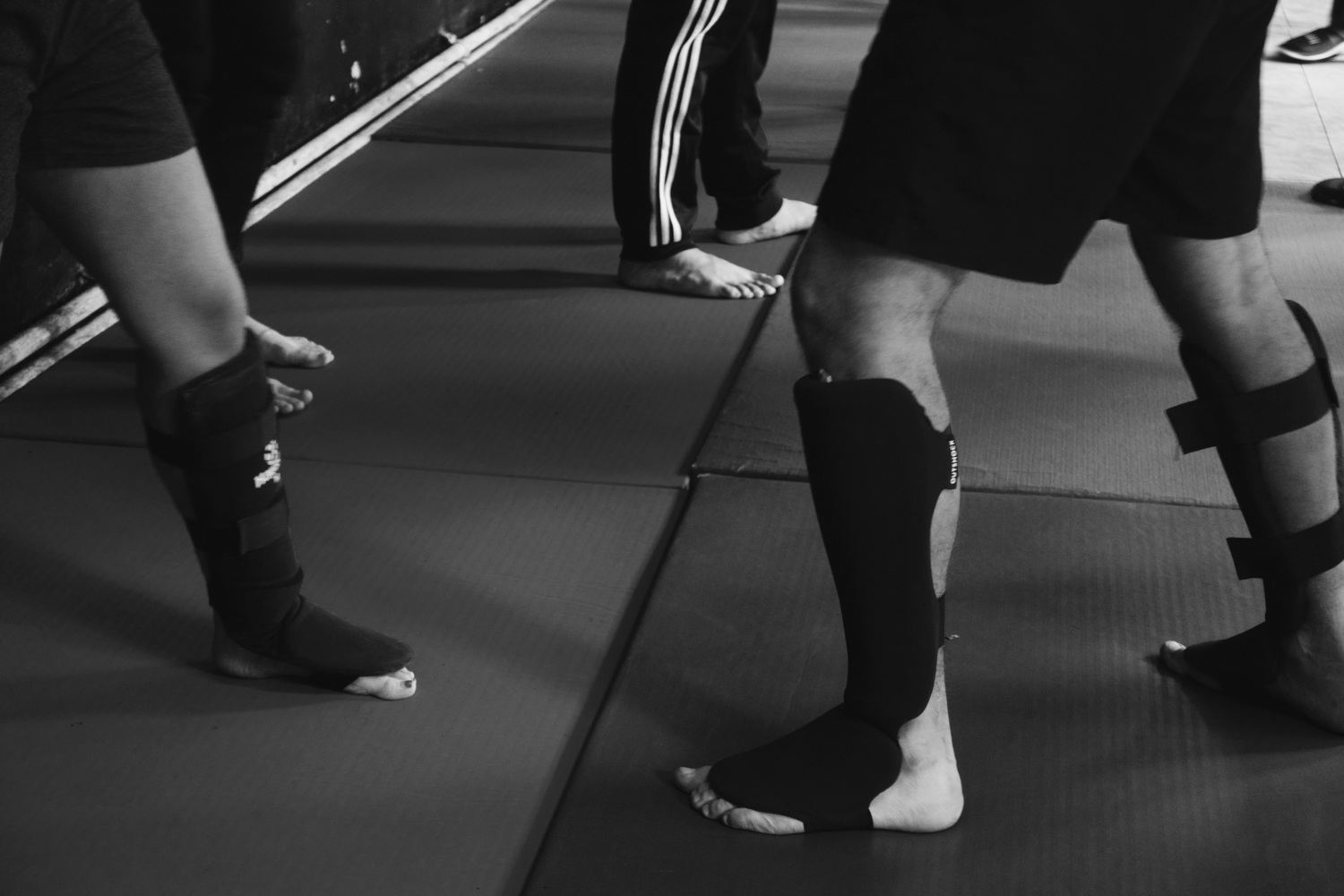THE RACCOON KAI POPULAR BOXING CLUB.
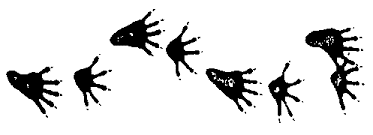

“Winter numbness allows the raccoon to conserve its energy in the form of fat reserves during periods of scarcity. This is a period of inactivity rather than hibernation”.
The clock is ticking and here I am lost in the twists and turns of the raccoon’s life. Captivated, a strange coincidence appearing on my phone reminds me of human reality: “Hello Momo, part of the club is going to the demonstration for Palestine. Do you still want to come?”
I smile: the Raccoon is not that inactive during the winter.

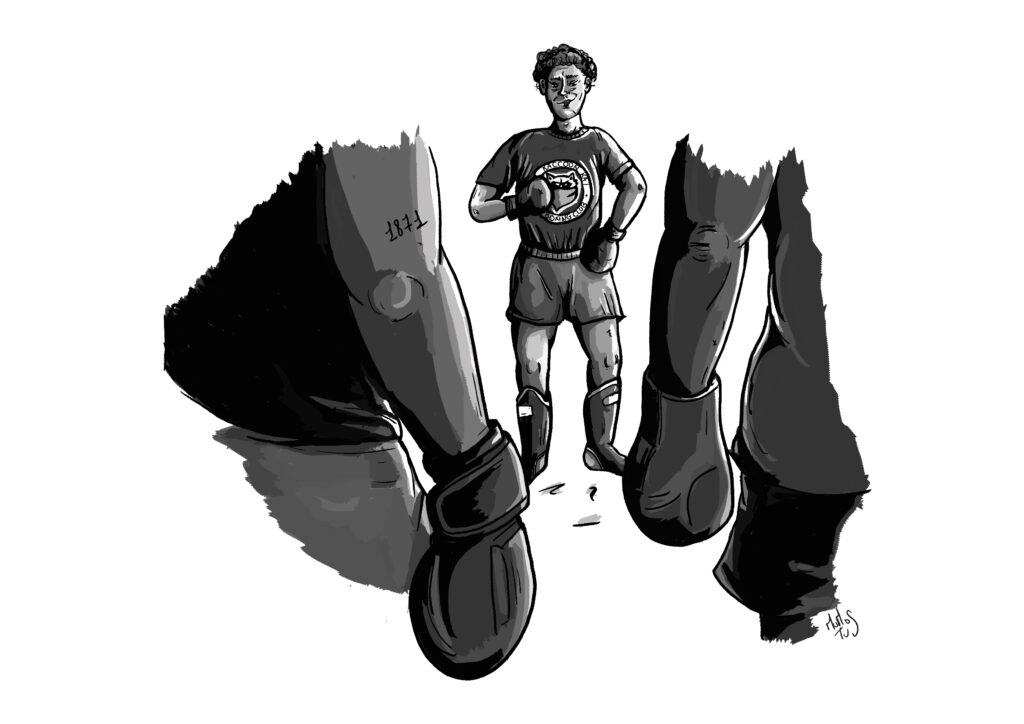
It is with this engaging overview of the Raccoon‘s pedigree that I rush into a little bumpy Parisian alley.
The scene is set: walls worn by time and scrap metal accumulating between the sheets of an old shed.
The Raccoon Kai Popular Boxing Club does not deviate from the habitat of its animal counterpart: sedentary for three years, after starting in the family garden, the Raccoons take up residence in the outbuildings, burrows and various cavities available.
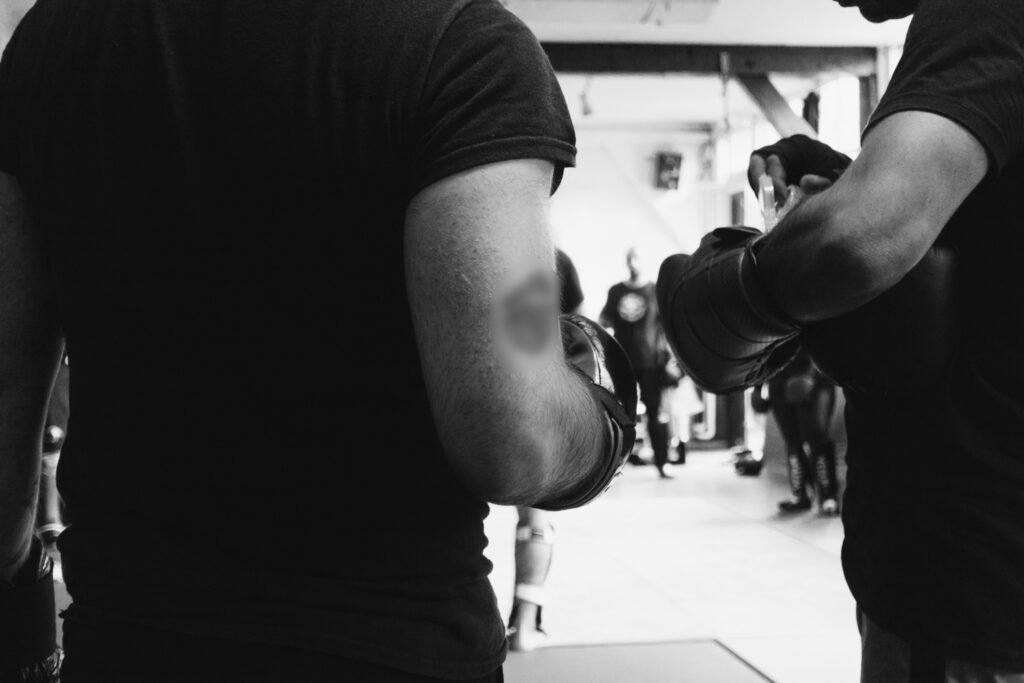
THE RACCOON IS POPULAR AND COMMITTED.

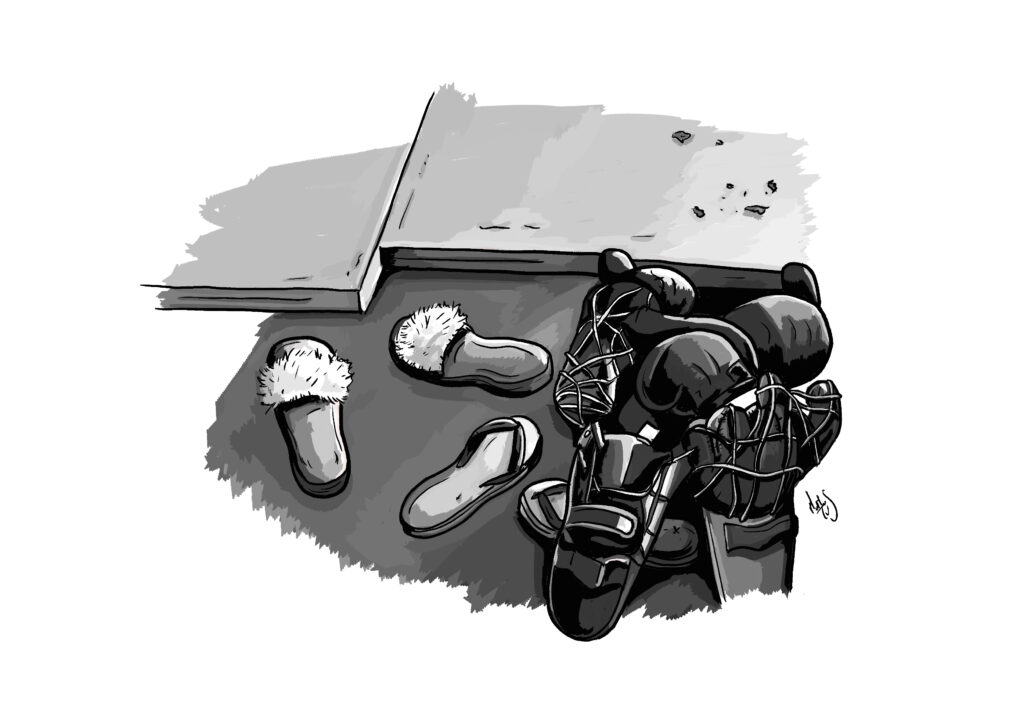
It is in a small room with a few tiles allowing light to filter through that things accumulate: from backpacks to handbags, from flip-flops to frilly slippers: each person is welcomed – inclusively and with a smile – in its singularity.
The Raccoon then puts on its protective fur: its hands are busy rotating the bandages and its feet are engulfed in the shin guards. As the pair’s round begins, a rain of rubbery shreds is scattered over the kicks: “I think my shin guard is disintegrating,” says a Raccoon, laughing.
“The club is accessible to everyone, training is free and protection is provided.” explains Bat, one of the founders. The Raccoon is part of a popular class commitment: recently, the qualifier “Antifacist” has given way to “Popular”.
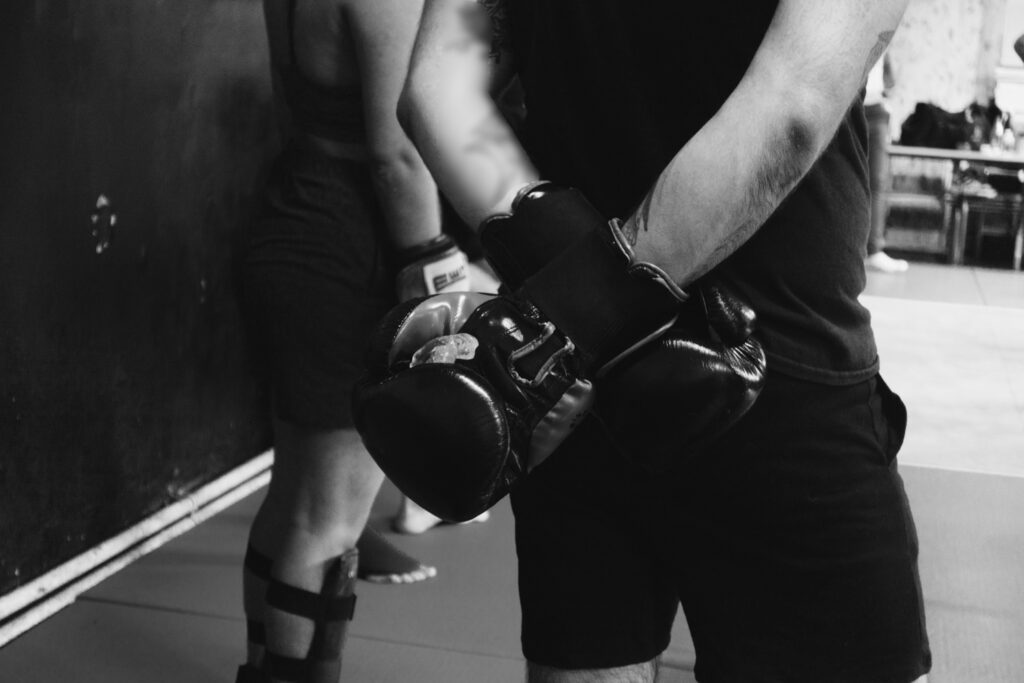
An observation which follows a Parisian gentrification of boxing: “Clubs ask for more than 700 euros per year” says Red, one of the supervisors. However, the raccoon has the particularity of adapting to wild life even after having been tamed. “Managers’ clubs” adds Bat.
Or the taming by white-collar workers of a popular sport, prohibitive prices and sanitized clubs.
As droplets of pain run along the bridge of his nose for the final plank, Red begins the ditty: “If you don’t like cops, clap your hands.” The most valiant will manage to levitate their bodies for this collective disenchantment. If outstretched arms and calves reveal 1871 (the Paris Commune) and other explicit bodily marks, militant links do not constitute the bond of the club: “We do not train fascist hunters” specifies Bat.
Above all, it is a commitment to humanist values and resistance to all forms of oppression which form the basis of this, as evidenced by additional support actions such as solidarity fundraising. “Prepare for the times to come. Not only in the fight but also ideologically” will say a Raccoon during the speaking turn at the end of training. Another will confide “I am not fundamentally politicized, but we must fight for the future of our children”.
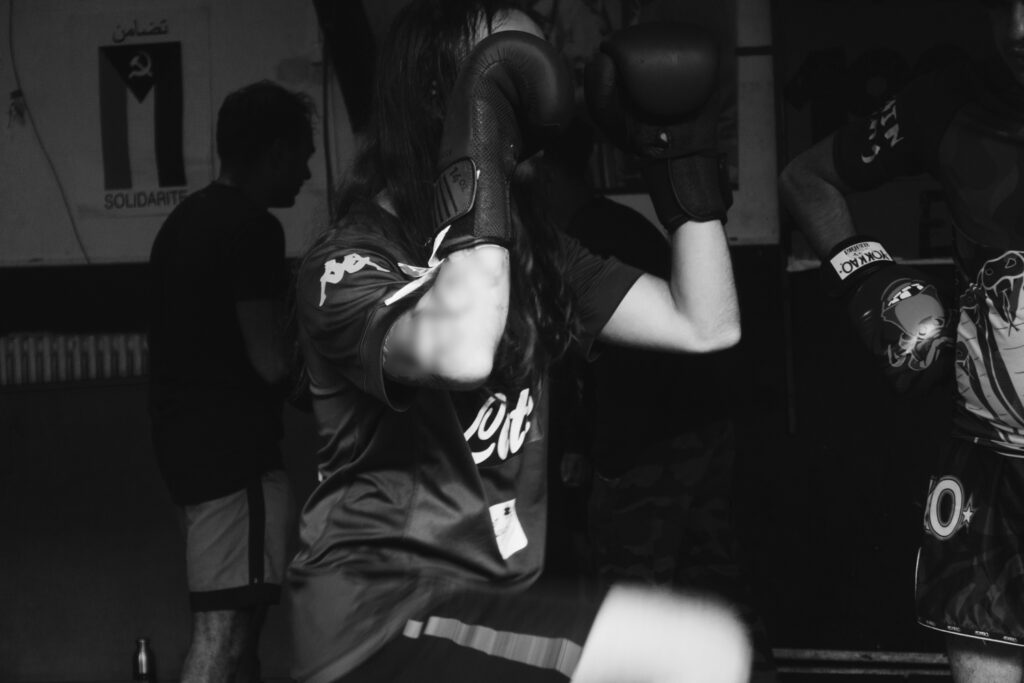
THE RACCOON TAKES CARE OF YOURSELF – AND OTHERS.

The raccoon, with its mischievous appearance, is a very smart animal: its human counterpart is just as smart, advocating intelligence in combat through self-defense. “We’re not here for the fight” emphasizes Bat.
“We just want everyone to be able to feel capable of defending themselves and to have the minimum against the first blow.”
It is in no way a question of giving punches to anger, but of having the presence of mind to react lucidly.
Some people experienced this first blow within these four walls. Others already bear the physical stigma. From a simple initiation to a first step towards a license, “There are all levels but everyone adapts to their partner. Strength is measured.” slips Bat.
“I didn’t understand why some comrades were hitting hard” a Raccoon will point out during the speaking round. The space is therefore benevolent enough for speech to be free and liberated, and to allow everyone to learn and adapt.
“Often, initiates tend to compensate for the technical deficit with force” Bat will explain to me. If the raccoon has non-retractable claws, it must be taught to control them well.
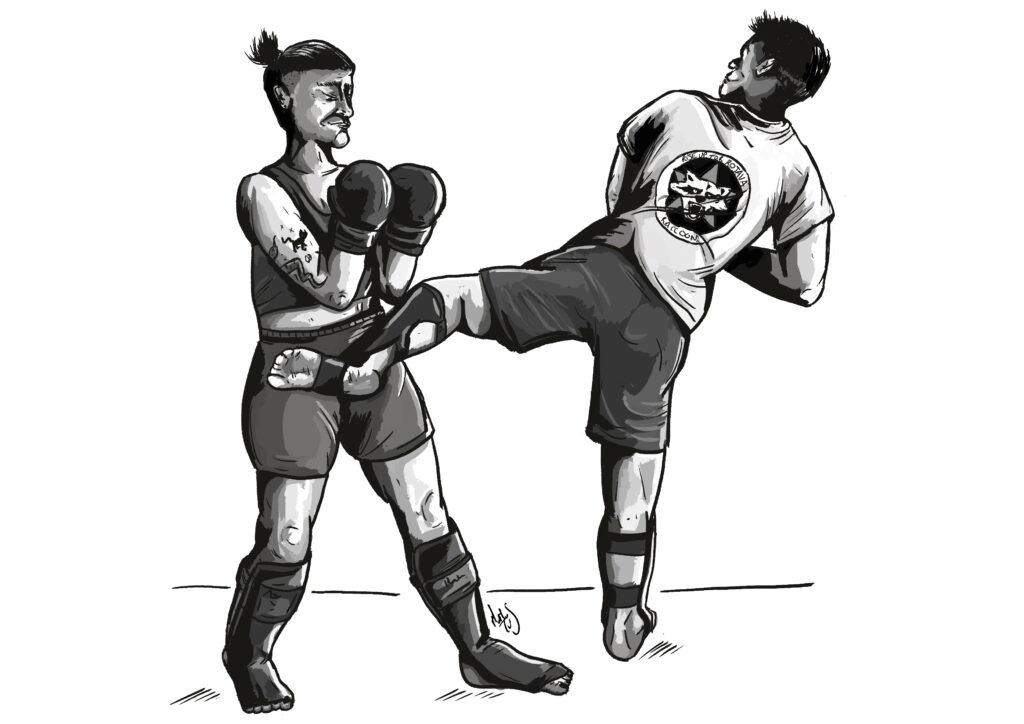
What is the tolerable threshold for the violence of the beatings? Hurting as much as being in pain is not easy. Frowned eyebrows regularly give way to worried smiles. “Are you okay, didn’t I hurt you?” Here, gently and in good humor, we learn to accept the use of violence, as well as the risk of our physical integrity.
In the floating of this ballet of raised feet and outstretched fists, an oxymoron comes to me: gentle violence. A framed and discussed exchange of blows, shifting the state monopoly of legitimate violence to anyone with the right to defend themselves.
This is a broader re-appropriation of combat sports in their defensive function. Sports often marked – in both political extremes – with virilism and combative effectiveness.
Due to its ability to set the body in motion, sport is a political tool. The sociologists D.Fassin and D.Memmi speak of “government of the body”: the body, a social object, is a place of expression of power but also of its exercise: the State exercises over bodies; the extreme right highlights its strength, the left opposes it in spirit. It is therefore an issue in many social struggles.
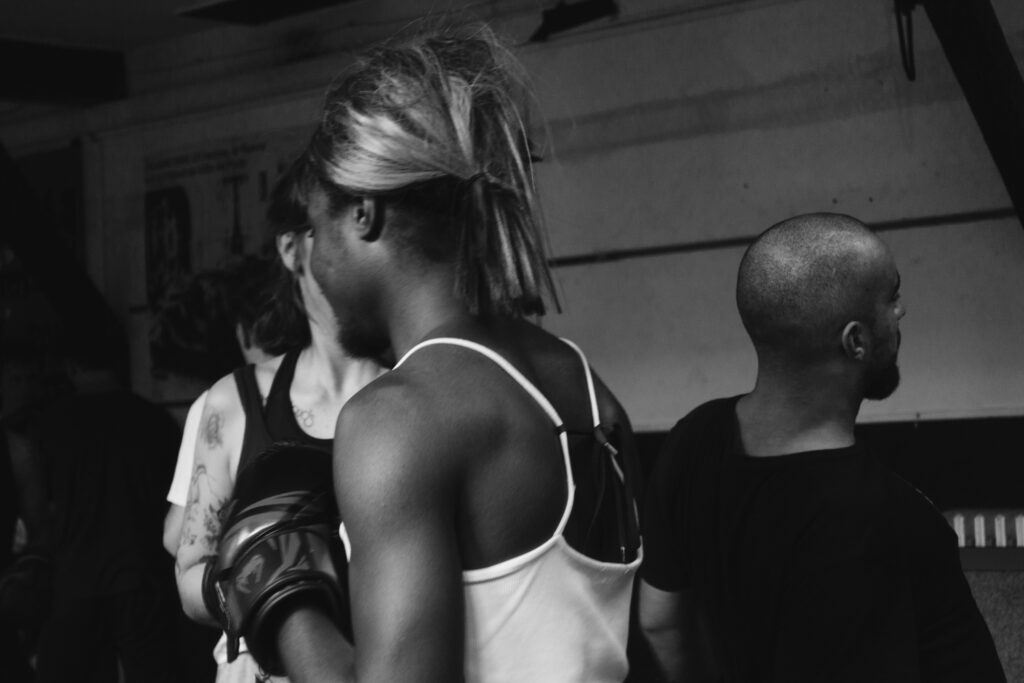
More than adorning the militant discourse with fists, the Raccoons advocate the precept of “knowing how to take care of yourself – and others”. This is indeed the main tool of the united community that our society should be.
We still need to learn to value ourselves.
Sport – and the body, within the limits of its capabilities – is a powerful accelerator when the mind struggles to find the balance between pride and humility.
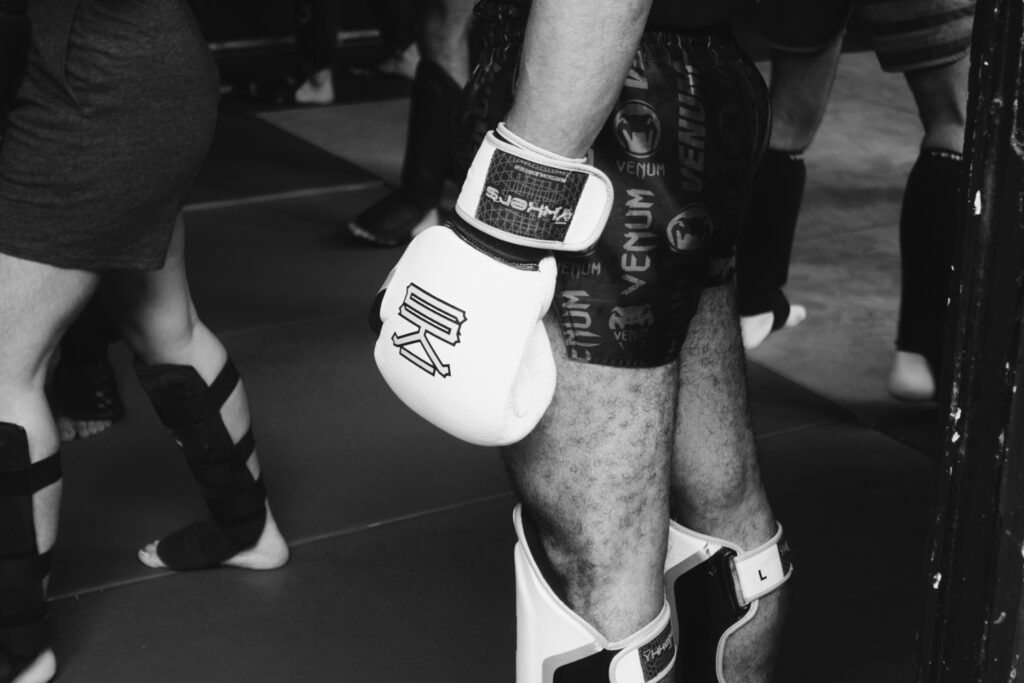
THE RACCOON IS ORGANIZED.
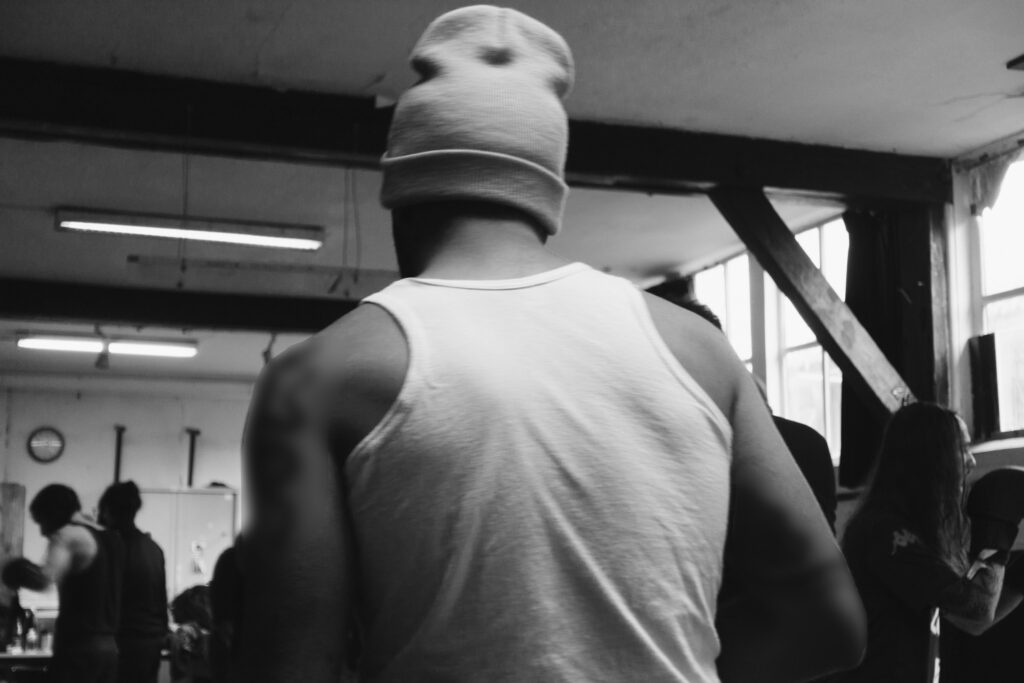
For two hours, the BPM of the speaker sound synchronizes with that of the heart. Hips roll to Aventura, legs rise martially to the choruses of the Red Army, tempers rise to the acidity of Rohff (a French rapper). “We don’t give bastard low-kicks !” to “Your knee has strength, go ahead and dare!”, the supervisors wake up the sleeping ones and calm the restless ones. The four of them complement each other in their way of supervising, creating this balance that pushes them to surpass themselves – without seeking ascendancy over the other. From the joking tone “You’re not going to the vegetable garden to pick a salad” to the martial cry “PLANK!”, the vocalizations of the founding Raccoons join those of their furry counterparts and alternate between grunts (danger), howls (flight), and hisses (gathering).
Personal time, but rich in transmission: “Seeing people come back, progress, and for some, pass on to them what will become a real passion, that is priceless” confides NG – over a beer well deserved. Because yes, the Raccoon secretly incubates a few packs at the bottom of the den for moments of dehydration.
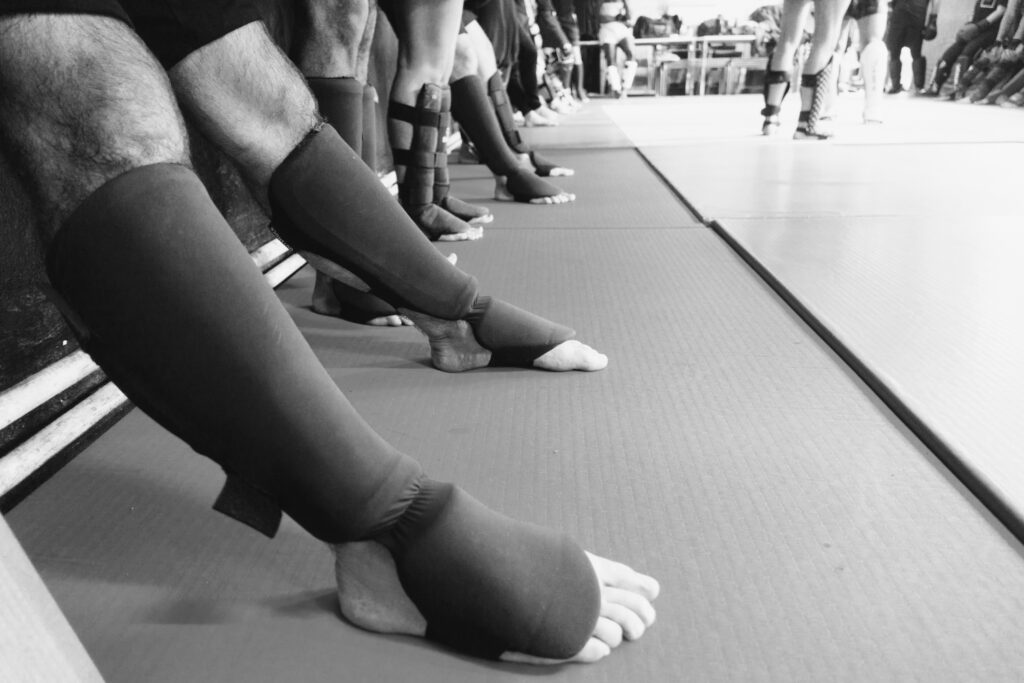
The raccoon can reach an exceptional density of 100 individuals per square kilometer in an urban environment. The den of the Raccoon Boxing Club can expand to around thirty participants over three weekly slots, from boxing to grappling, the number of supervisors – a total of twelve – ensures an initiation for each new Raccoon.
Moving away from the master-student pair, everyone can be part of a logic of horizontal transmission, from experienced to beginners, and vice versa. Thus, everyone is free to get involved in the club more fully and express their opinion. A Discord was created to exchange information, readings or even “geek together” slips NG, one of the founders. Because yes, the raccoon also likes to take it easy.
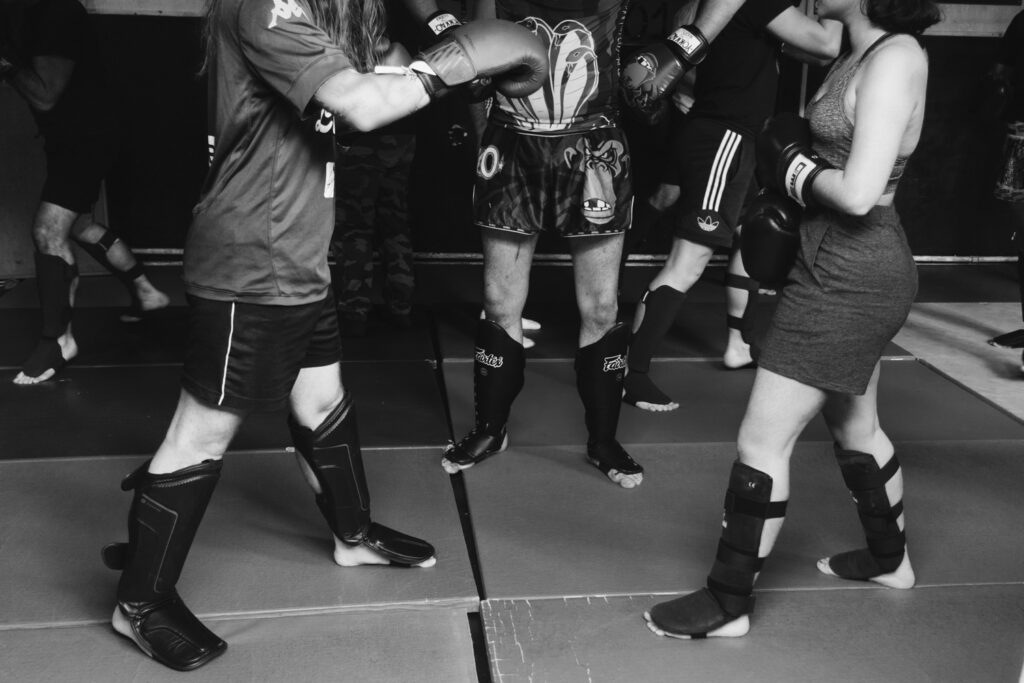
THE RACCOON IS A FEMINIST.

The Raccoons are aware that they have one last territory to explore: a safe and non-mixed space. “Only, the rare pearl is to be found to train.” slides NG. A section of the Discord dedicated to sexualized and queer people has been created pending a dedicated slot.
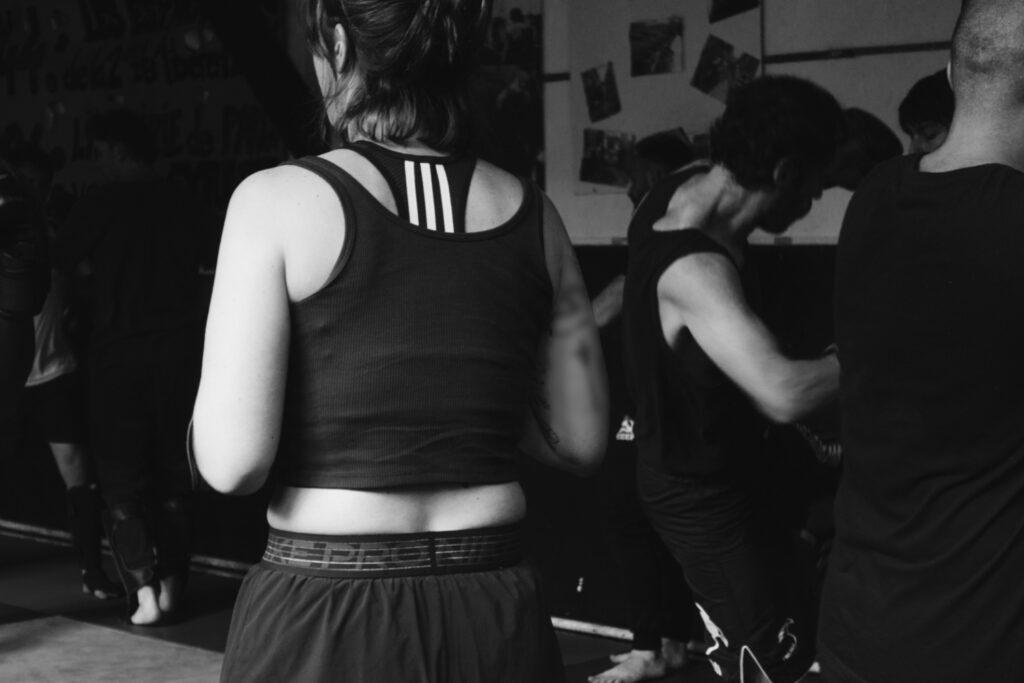
“We hope we made you want to come back!” Bat slides at the end of the workout. “I think I feel a little ridiculous with my fists outstretched” I confide, thinking of the gesticulating image of my two cotton buds. I then realized, as a little female raccoon, that I had internalized the virilist identity of boxing.
Combat sports are often considered as spaces for consolidating this identity, the use of violence having long been the terrain of male domination. The first women to enter the ring had to build a relationship with the technique and ethics of boxing that could be described as “masculine” through an assimilation of bodily and behavioral sexual norms. Unlike French boxing, labeled as more “suitable” for women.
The growing commitment of female & LGBTQIA+ people to learning pugilistic techniques leads to a rethinking of the practice, just like, we hope, the vision carried by Raccoon Kai or his parisian comrades Le Boxon and Un ring pour tout ·e·s – among many others!

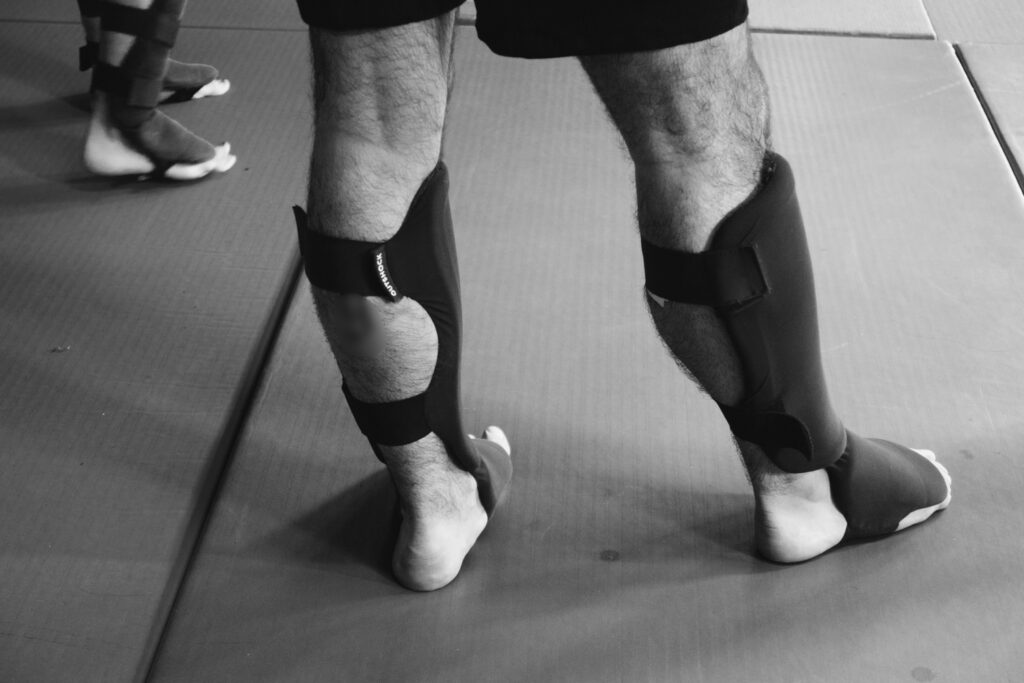
If you know an old groundhog hole or sewer capable of accommodating more than thirty Raccoons with a minimum of equipment – although the raccoon happily frequents the trash cans, the Raccoon appreciates a certain comfort – or if you have the pedigree of a Raccoon (except cisgender male raccoon) and you are ready to teach for the safe non-mixed training, send them a shout: raccooonkaiboxingclub@protonmail.com
IG: @raccoon_kai_boxing_club
